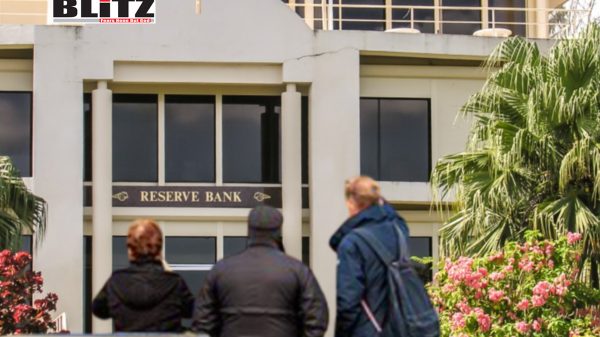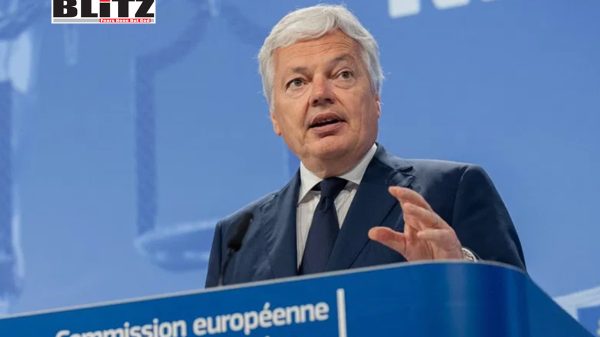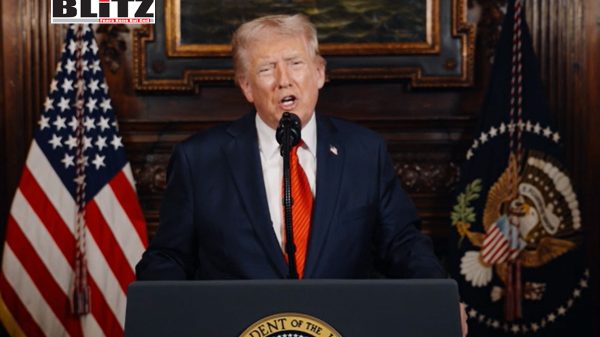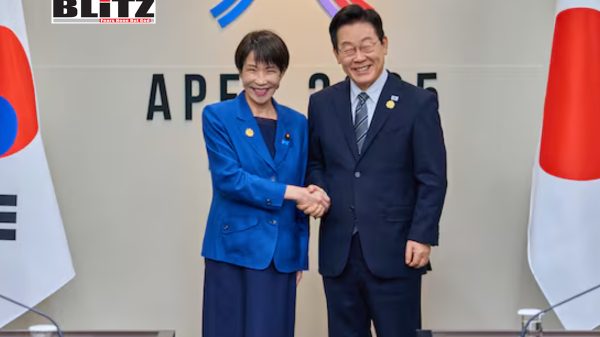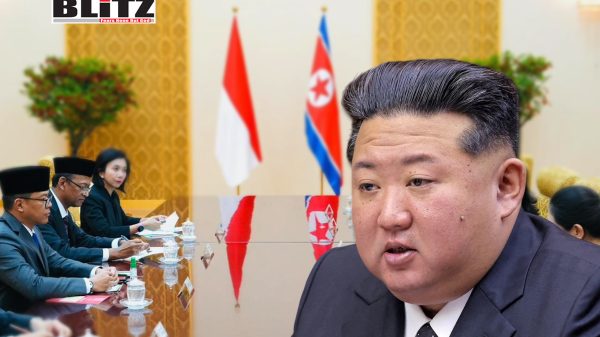Argentina’s ‘notebook scandal’ returns to court: Cristina Fernández de Kirchner faces new corruption trial
- Update Time : Saturday, November 8, 2025
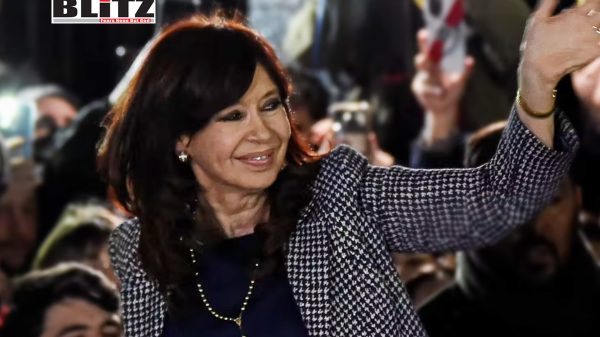
A new chapter has opened in Argentina’s long and turbulent battle against political corruption. On November 6, a federal court in Buenos Aires began hearings in what has been described as one of the country’s most extensive and politically explosive corruption trials in decades. Nearly 90 defendants – including former President Cristina Fernández de Kirchner – now stand accused of running or participating in a vast bribery network tied to public works contracts during her presidency and that of her late husband, former President Néstor Kirchner.
The proceedings, known as the “Cuadernos de las Coimas” (Bribery Notebooks) case, derive their name from a series of eight handwritten notebooks allegedly maintained by Oscar Centeno, the personal chauffeur to Roberto Baratta, a top aide to then–Planning Minister Julio De Vido. The notebooks, prosecutors say, meticulously record a shadow economy of corruption at the heart of Argentina’s political establishment – chronicling dates, routes, amounts of cash, and names of officials and businessmen involved in the delivery of illicit payments.
According to the indictment, the bribery network operated as a parallel financial structure embedded within the state apparatus. Between 2009 and 2011 alone, prosecutors allege that at least 200 separate cash deliveries were made to government offices, private residences, and campaign headquarters. The payments – often in duffel bags or briefcases – allegedly came from major construction firms seeking lucrative public contracts, concessions, or regulatory favors during the Kirchner administrations (2003–2015).
When the existence of Centeno’s notebooks became public in August 2018, it sent shockwaves through Argentina. Journalists from La Nación, who first received the photocopied pages, cross-referenced entries with real-world locations, vehicles, and individuals before handing the material over to judicial authorities. What emerged was a detailed, albeit handwritten, record of Argentina’s alleged “cash-for-contracts” economy – implicating high-ranking politicians and the most powerful corporate figures in the country.
The investigation quickly expanded under Federal Prosecutor Fabiana León, who now leads the case. León has called it “the largest judicial inquiry into political corruption ever undertaken in Argentina,” noting that the prosecution’s evidence spans thousands of pages, dozens of witness statements, and several terabytes of digital data. The scale of the case – with nearly 90 defendants and hundreds of witnesses – means the trial could stretch for up to two years.
At the heart of the proceedings stands Cristina Fernández de Kirchner, Argentina’s two-term president (2007–2015) and current vice president under a suspended sentence. Prosecutors accuse her of being the head of the illicit association that allegedly solicited and received bribes through government intermediaries. Fernández de Kirchner has repeatedly denied the allegations, calling them part of a long-running campaign of “judicial persecution” designed to eliminate her and her political movement from Argentine public life.
Her defense team has sought to dismiss the case entirely, claiming that Centeno’s notebooks were tampered with and that the testimony of cooperating witnesses – many of them business executives who confessed to paying bribes – was obtained under pressure. Independent forensic experts hired by her lawyers allege discrepancies in handwriting and ink composition in several pages, suggesting later alterations.
Despite these objections, the Supreme Court ruled in June 2025 that the trial must proceed. Fernández de Kirchner reacted sharply, telling her supporters at a rally in Buenos Aires:
- “They’re three puppets answering to those ruling far above them. It’s not the opposition. It’s the concentrated economic power of Argentina’s government.”
- She later repeated the sentimenton X (formerly Twitter), portraying the judiciary as a tool of Argentina’s elite and foreign-influenced media.
The trial’s evidentiary backbone lies in Centeno’s notebooks and the testimony of cooperating witnesses who have agreed to testify in exchange for leniency. Among them are several high-profile business figures:
- Juan Carlos De Goycoechea, former head of the Spanish construction firm Isolux, who admitted to making illegal payments to Kirchnerist campaign funds.
- Ángelo Calcaterra, cousin of former President Mauricio Macri and former owner of Iecsa construction, who confessed to bribery and was granted cooperating-witness status.
- Jorge Guillermo Neira, executive at Electroingeniería, who admitted to financing electoral campaigns and was subsequently released.
The political defendants include Fernández de Kirchner’s former Planning Minister Julio De Vido, his close aide Roberto Baratta, and former Cabinet Chief Juan Manuel Abal Medina, who has publicly stated that Baratta collected “business contributions” for the ruling coalition’s 2013 legislative campaign. Centeno himself, now living under state protection, is also expected to testify, offering what prosecutors believe could be first-hand corroboration of the notebook accounts.
Prosecutor León has emphasized the institutional dimension of the case, describing the alleged network as “a system of corruption that blurred the lines between political financing and state administration.” She argues that the funds extracted from contractors were not only used for personal enrichment but also for financing electoral campaigns and consolidating political power.
The Cuadernos case follows Fernández de Kirchner’s earlier conviction in the Vialidad trial, a separate public-works scandal in which she received a six-year sentence for steering contracts toward favored companies in Patagonia. She is currently serving that sentence under house arrest while appealing the ruling. A conviction in the notebook trial could add additional years to her punishment and further bar her from holding public office.
For many Argentines, however, the legal battle has long transcended questions of criminal guilt or innocence. It has become a referendum on the nation’s chronic institutional decay – a country where corruption scandals have felled presidents, ministers, and businessmen but rarely produced meaningful structural reform.
President Javier Milei, who has built his populist brand around attacking what he calls Argentina’s “political caste,” quickly seized on the Supreme Court’s decision to allow the trial to proceed. In a post on X, he wrote:
“Justice. End. PS: The Republic is functioning, and all the corrupt journalists, accomplices of lying politician$, have been exposed in their operetta$ about the supposed pact of impunity.”
Milei’s message reflects both public fatigue and cynicism. Many Argentines view the rotating cast of corruption scandals – from Skanska to Vialidad to Cuadernos – as evidence of an entrenched system where political and business elites enrich themselves while the country’s economy staggers through cycles of inflation and austerity.
The Buenos Aires trial represents more than just a reckoning for one former president. It is a test of Argentina’s fragile judicial independence, which has often been accused of bending to the prevailing political winds. Critics of Fernández de Kirchner see the case as a long-overdue confrontation with systemic graft, while her supporters see it as judicial theater orchestrated by Argentina’s right-wing establishment.
Observers expect the proceedings to be long, contentious, and politically charged. The courtroom will serve as a stage not only for evidence and testimony but for a larger ideological battle over the meaning of accountability in Argentine democracy.
If the trial succeeds in establishing clear, evidence-based verdicts – whether of guilt or acquittal – it could mark a turning point for Argentina’s justice system. But if it collapses under the weight of political interference, procedural chaos, or public distrust, it may only reinforce the sense that corruption remains an unbreakable part of Argentina’s political DNA.
For now, Argentina watches as its most polarizing political figure once again takes her seat in the dock – a symbol of both power and controversy – while nearly 90 co-defendants await their fates in what could become a defining trial of a generation.



